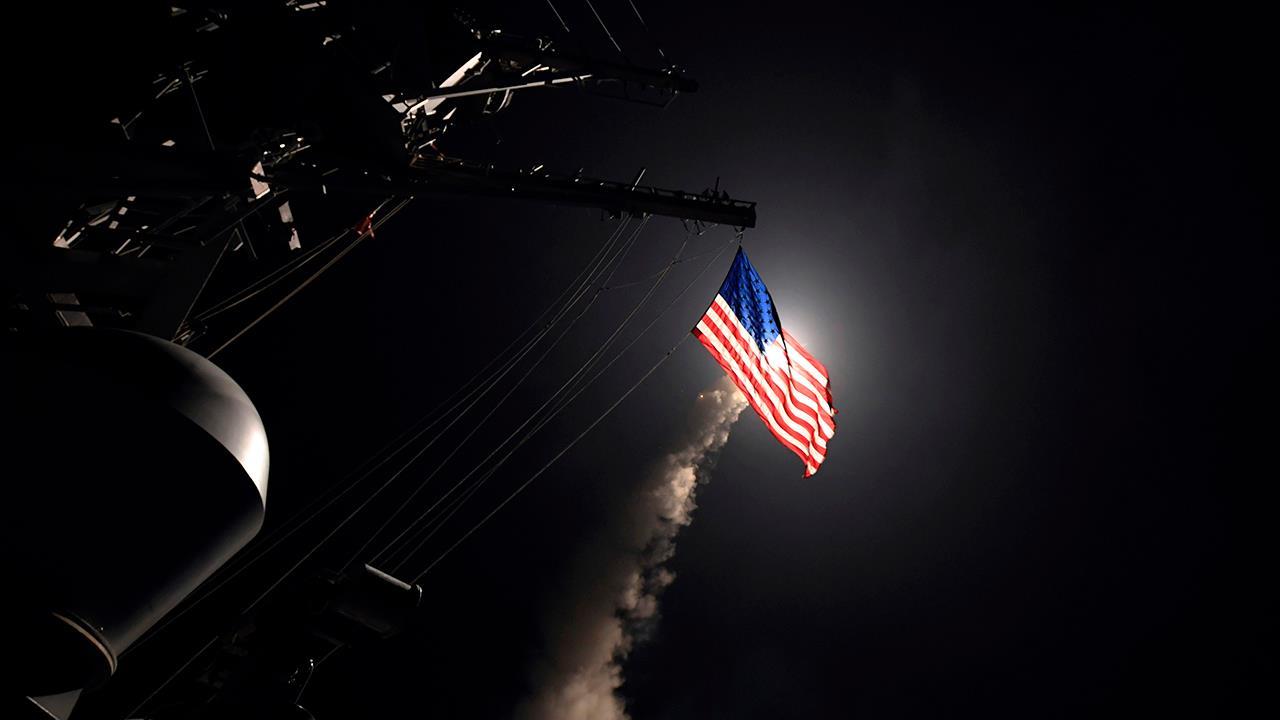Pentagon: US strikes cripple Syria's chemical weapons ability
The United States said on Saturday it overwhelmed and evaded Syrian air defenses overnight to strike every target at the heart of Syria's chemical weapons program, in a multi-pronged attack from the air and sea alongside British and French allies.
Although the operation was secretly unfolding for hours before the first impact, it only took minutes from the first to the last detonation from 105 precision-guided missile strikes on three Syrian chemical weapons targets, officials said.
Marine Lieutenant General Kenneth McKenzie, director of the Joint Staff, rejected assertions from Russia and Syria that scores of the Western missiles were shot down.
He said Russian air defenses did not fire, while Syrian air defenses were completely ineffective against an attack from multiple directions involving not just U.S., British and French aircraft but also U.S. naval destroyers, a cruiser and French frigate and even a U.S. submarine.
The Syrian air defenses not only missed the incoming missiles but they kept firing even after the last U.S., British and French strikes were complete. Some of those more than 40 Syrian missile interceptors, he suggested, might have hit civilian targets.
"When you shoot iron into the sky without guidance, it will inevitably fall to earth," McKenzie told reporters.
Pentagon spokeswoman Dana White warned that Russia was actively attempting to sow confusion about the attack.
"The Russian disinformation campaign has already begun. There has been a 2,000 percent increase in Russian trolls in the last 24 hours," White said.
The prime target of the operation was the Barza Research and Development Center in the greater Damascus area, which McKenzie noted was "one of the most heavily defended aerospace areas in the world."
Barza took the brunt of the fire, with 57 Tomahawk cruise missiles and 19 Joint Air to Surface Stand-off missiles.
Though some of Syria's chemical weapons infrastructure was still left, "I think we've dealt them a severe blow," McKenzie said, adding it would set the program back for years.
Despite severely damaging the infrastructure with the strikes, McKenzie said the Pentagon would not rule out that the Assad government still had capability to use such weapons again.
"There's still a residual element of the Syrian program that's out there," he said.
"I'm not going to say that they're going to be unable to continue to conduct a chemical attack in the future. I suspect, however, they'll think long and hard about it." (Reporting by Phil Stewart, Idrees Ali and Doina Chiacu; writing by Jeff Mason; Editing by David Gregorio)




















